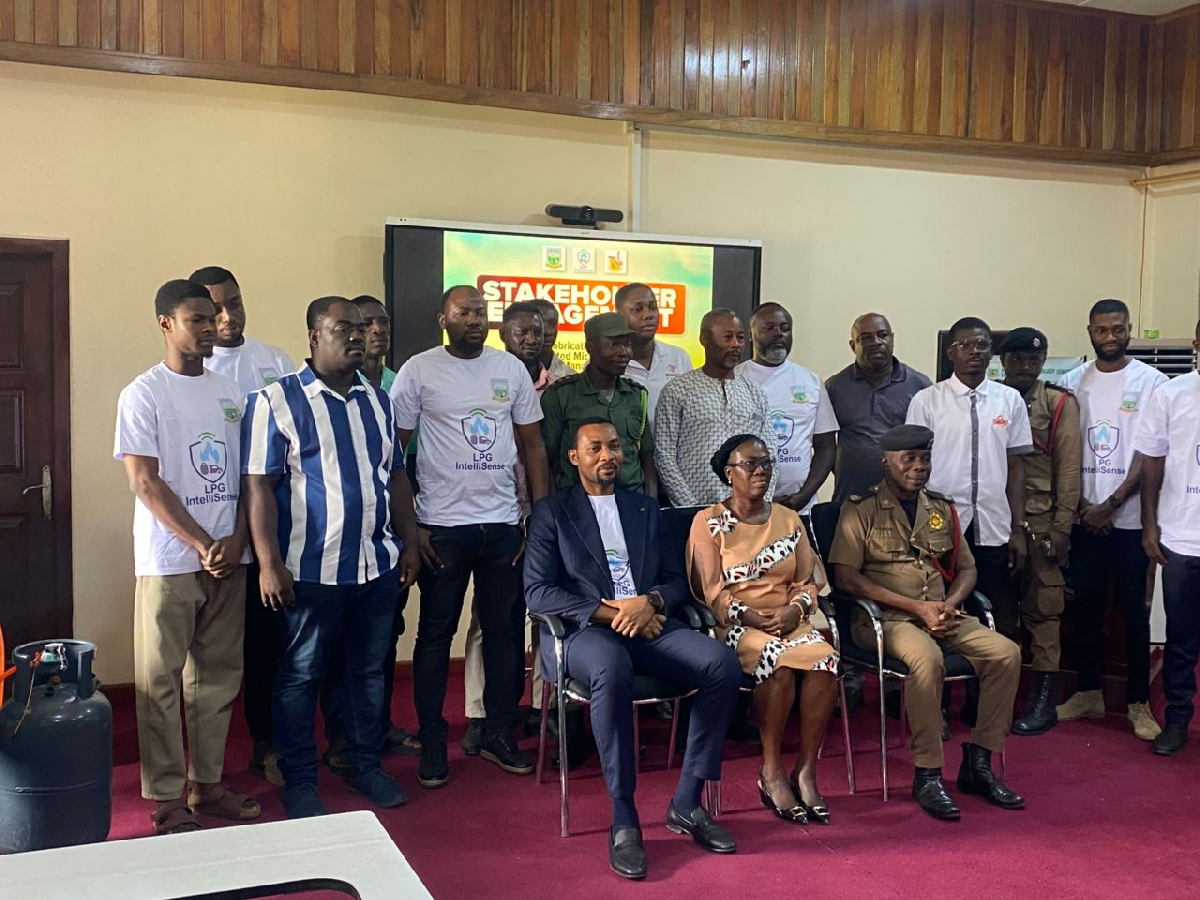This blog is managed by the content creator and not GhanaWeb, its affiliates, or employees. Advertising on this blog requires a minimum of GH₵50 a week. Contact the blog owner with any queries.
The University of Mines and Technology (UMaT) has announced the development of three innovative microcontroller-based LPG safety devices designed to improve safety in homes, vehicles, and general indoor spaces.
The devices, unveiled by the School of Petroleum and Natural Gas Engineering, integrate gas-sensing technology with automatic shut-off and alarm systems to prevent explosions and fire hazards caused by gas leakages.
According to the lead researcher, Associate Professor Richard Amorin, the project was supported by the Ghana Chamber of Mines and aims to address one of Ghana’s critical energy safety concerns.
“We have manufactured three smart devices. One for kitchens that detects LPG leakages and smoke from vents during cooking, and automatically shuts off gas flow to prevent fire. Another regulates gas flow in automobiles, cutting the supply to the engine in case of a leak. The third is a simple plug-and-play LPG sensor that can be used in any space, including tankers and refilling stations,” Prof. Amorin explained.

He stressed that traditional methods of detecting gas leaks—such as relying on smell or using soapy water—are outdated and unsafe.
“Studies show that over 90 percent of people rely on their sense of smell to detect LPG leaks. That is inefficient and dangerous. A smart sensor is more reliable and effective under all conditions,” he said
Prof. Amorin also added that “As the government promotes LPG as a transition fuel with a target of 50 percent penetration by 2030, it must be complemented with safety protocols. We call on the government and the National Petroleum Authority (NPA) to partner with UMaT to scale up these devices so every home and every space using LPG can safely monitor, detect, and control its use.”
He noted that “LPG is one of the cleanest fuels compared to charcoal and firewood, which are hazardous to health. But it must be used wisely and safely. Every user should consider adopting smart detection devices to ensure protection for themselves and their families.”
On her part, Mrs. Florence Antwiwaah, Senior Assistant Registrar at UMaT’s Office of Research and Consultancy, called for stronger support for university research initiatives.
“UMaT is committed to research that addresses societal challenges. Projects like this have a direct social impact, but to scale them up, we need support from the government, external agencies, and international partners. Research requires funding for data collection, community engagement, and product development, and this project shows how impactful such investments can be,” she emphasised.
She added that the university hopes these innovations will be commercialised, allowing households, industries, and institutions to benefit from the life-saving technology.


